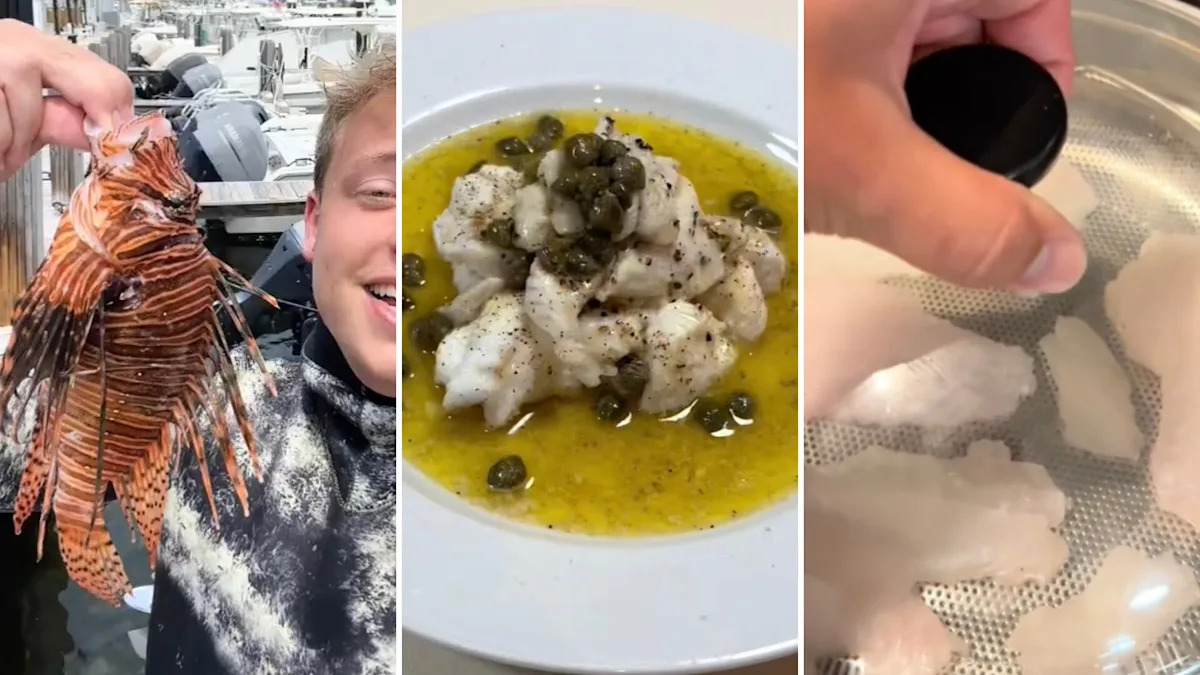While invasive species have become an increasingly challenging problem worldwide, people have been finding ways to not only minimize their effects but also capitalize on them.
A recent video on TikTok has caught attention for showing a simple way to deal with one of the ocean’s most destructive invaders — and turn it into dinner in the process. The user, Gray Davis (@gray.davis), shows step by step how to prepare and use a lionfish, an invasive species that has spread rapidly through coastal waters in recent years.
“Lionfish are extremely bad for the ecosystem in Florida because they have no natural predators,” Davis explains. “However, they’re not very fast, and all it takes is a simple pole spear to capture one.”
Davis went on to explain that lionfish are venomous but not poisonous, which means as long as you are careful not to touch the fish’s sharp spines, it is not only harmless, but it’s also delicious. (That said, like all predatory reef fish, lionfish carry some risk for ciguatera food poisoning, such as with groupers, snappers, jacks, and mackerel.) After filleting and cleaning the lionfish, Davis cooks the fish and eats it.
But he doesn’t stop there. After cooking, Davis takes the leftover bones and scraps out to his banana trees and buries them in the soil as fertilizer. Nothing goes to waste.
Lionfish have become one of the most damaging invasive species in the Atlantic and Caribbean. With few natural predators, they reproduce quickly and feed on native fish that are vital to coral reef health.
Watch now: Giant snails invading New York City?
Harvesting and eating lionfish is one of the simplest ways to keep their numbers down. And by using every part of the fish — even the scraps for garden fertilizer — people can make the most of each catch while reducing pressure on marine ecosystems.
“Looks awesome,” one user commented on the post, responding to the appetizing dish the user created.
“You should make a company where people pay you to take them to catch their dinner and then teach them how to cook it,” another said.
This kind of approach shows how conservation doesn’t have to feel out of reach. Sometimes it looks as ordinary as a meal at home and a few banana trees in the yard.
Join our free newsletter for easy tips to save more and waste less, and don’t miss this cool list of easy ways to help yourself while helping the planet.

